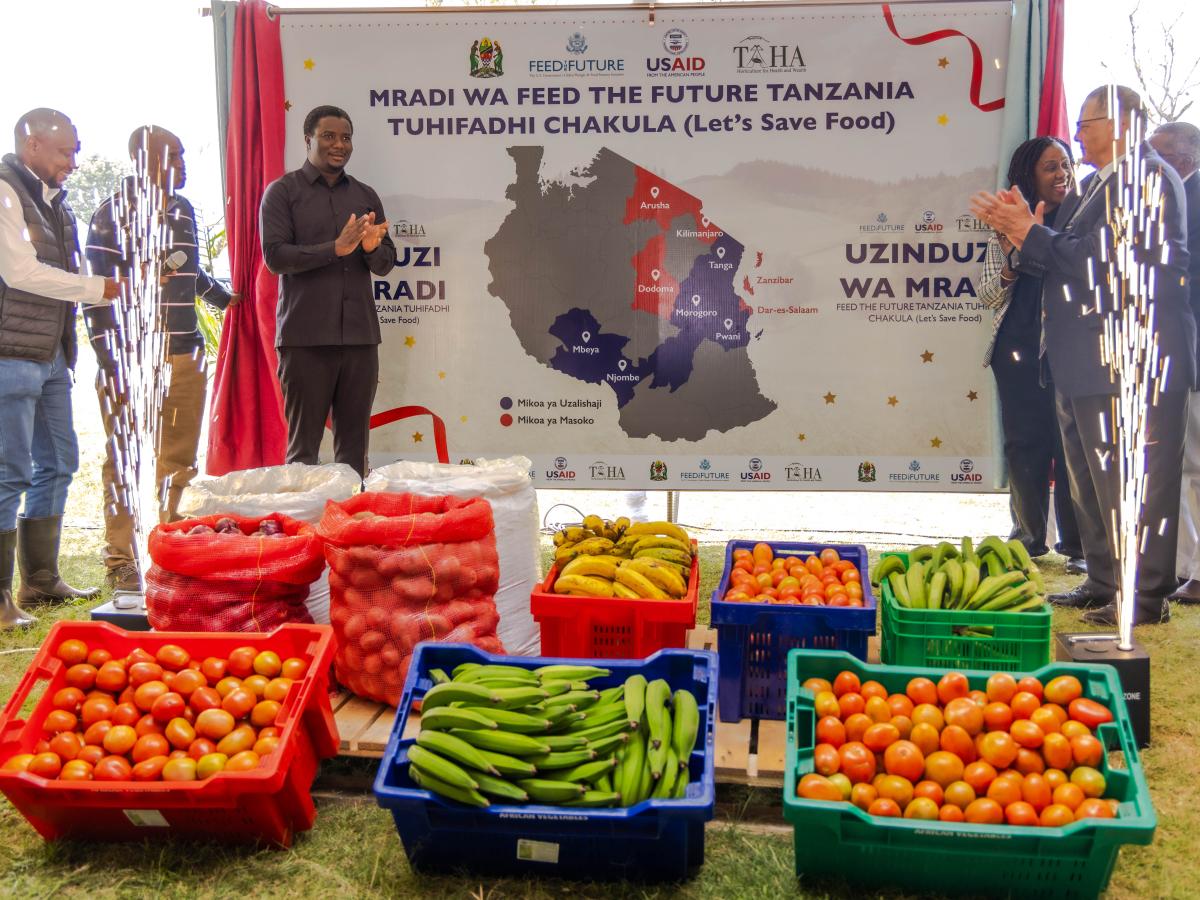For Immediate Release
Press Release
Kilimanjaro, Tanzania – Today the United States Agency for International Development (USAID) reinforced its ongoing commitment to food security with the announcement of the Feed the Future Tanzania Tuhifadhi Chakula (Let’s Save Food) project. This 60 billion Tanzanian Shilling ($24 million), five-year initiative focuses on reducing post-harvest losses in Tanzania’s horticulture and cereal value chains and is implemented by the Tanzania Horticulture Association and SAGCOT Center. USAID partners, farmers, traders, and processors showcased their collaborative efforts to tackle food loss and waste at the event, which was attended by the Deputy Minister for Agriculture, Hon. David Silinde, Hai District Commissioner Lazaro Twange, and U.S. Ambassador Michael Battle.
“We celebrate partnerships today that will increase food security, boost livelihoods, create jobs, and generate export opportunities, especially for women and youth,” said Ambassador Battle. “Through projects like this and the newly announced Food Loss and Waste Accelerator, Tanzania is on track to reduce post-harvest losses by 50 percent in the program’s target areas. These partnerships are expected to bring up to $20 million in investment for processing plants and innovative uses of agricultural waste.”
Since being awarded in August 2023, the Feed the Future Tanzania Tuhifadhi Chakula project has made a significant impact including on Kilimanjaro’s banana market, ensuring 216,000 metric tons reached buyers, reducing post-harvest losses, and generating nearly 400 million Tanzanian Shillings in income for local farmers.
The project will engage more than 930,000 value chain actors—including farmers, processors, traders, and financial institutions—across Tanzania. Running from August 2023 to July 2028, it operates in ten regions across Tanzania (Morogoro, Njombe, Pwani, Tanga, and Zanzibar, Arusha, Dar es Salaam, Dodoma, and Kilimanjaro).
The launch of the Feed the Future Tanzania Tuhifadhi Chakula projects comes on the heels of the September 19 announcement by Assistant to the U.S. President for National Security Affairs Jake Sullivan and USAID Administrator and Feed the Future Coordinator Samantha Power that the United States government, working with the U.S. Congress has committed more than $80 million of new Feed the Future funds and supplemental resources, including $13 million in additional support for Tanzania. This funding supports the Feed the Future Accelerator, an effort to deepen the U.S. government’s food security partnership and focus resources on three countries in Southern and Eastern Africa.
Under the Feed the Future Accelerator, U.S. investments will harness the region’s combination of fertile land, diverse farming systems, and reform-minded governments to support a regional breadbasket. This has the potential to stimulate inclusive, economic growth across borders while strengthening the resilience of producers and systems to endemic shocks and stresses. Recent research has demonstrated that increasing cereal yields by 25 percent in Eastern and Southern Africa could boost the value of agricultural production in the region by over $24 billion by 2030 and reduce hunger for 22 million people.
For more information about this press release, please contact the USAID/Tanzania Development Outreach and Communications Team at Dardocs@usaid.gov.

